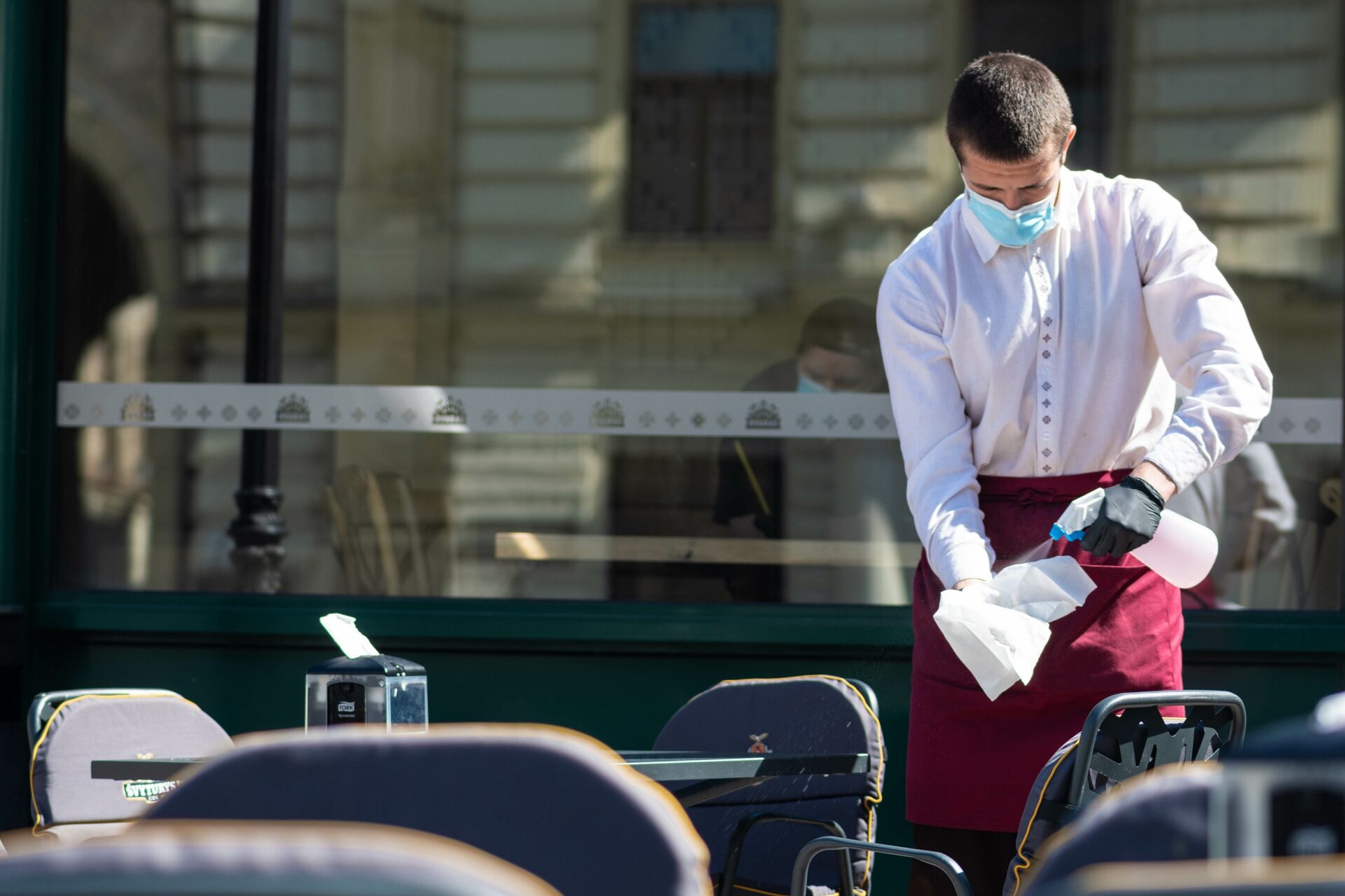
Latest coronavirus rules for hospitality sector – protecting your premises licence

David Edwards, head of Harrison Drury’s regulatory team, considers the new coronavirus rules for the hospitality sector and what businesses must do to comply.
On Tuesday 22 September 2020, the government announced further national measures to address rising cases of coronavirus in England.
These restrictions are imposed on the hospitality sector through the Health Protection (Coronavirus, Restrictions) (Obligations of Hospitality Undertakings) (England) Regulations 2020, which were introduced on 17 September 2020.
What are the new rules?
From 24 September 2020, any business selling food or drink (including bars, pubs, cafes and restaurants), social clubs, casinos, bowling alleys, amusement arcades (and any other indoor leisure centres or facilities), funfairs, theme parks, adventure parks and activities, and bingo halls, must be closed between 10pm and 5am.
These new closing times will also include takeaways, but delivery services can continue after 10pm. Businesses across the hospitality sector may consider opening their premises earlier to account for ‘lost time’ and apply for a variation on their premise licence to reflect the new operating hours or to make an significant changes.
What hospitality businesses need to do
It’s absolutely imperative for hospitality venues to be able to materially demonstrate their COVID-19 secure credentials.
Food and drink must be ordered from and served at a table and customers must eat and drink at a table in any licensed premises selling food and drink to consume on site. Customers must also wear face coverings, except when seated at a table to eat or drink and staff are now required to wear face coverings and visors at all times.
People who are already exempt from the existing face covering obligations, such as those with an underlying health condition, will continue to be exempt from these new requirements.
Test and trace obligations for hospitality businesses
Previous guidance published by the government, simply encouraged hospitality organisations to obtain contact details of customers; however, stricter guidelines now make it a legal requirement to do so, by using the official NHS QR code posters.
Customers with smartphones will simply scan the QR code using the NHS COVID-19 app, enabling them to ‘check-in’ at different premises with significant ease. The NHS COVID-19 app is part of the NHS Test and Trace, overseen by the UK Department of Health and Social Care.
The new app will use a COVID-19 exposure notification system, which Apple and Google have built into the new versions of their operating systems, iOS and Android.
Hospitality owners should display multiple posters throughout the premises to seek to ensure that there is no build-up of queues.
If an individual cannot scan the QR-Code because of a disability / health condition or because they are under the age of 16, the organisation must ask for name, contact telephone number, (failing which contact e-mail address, or postal address – in that order) date, and time of entry. These details must be retained securely for 21 days and then destroyed appropriately.
Therefore, hospitality business owners should consider whether their Privacy Notice is fit for purpose, bearing in mind the requirements of the latest legislation and restrictions.
What are the penalties for non-compliance?
It is important to note that failure to do any of the above in relation to displaying the QR Code poster or recording the details from a customer is a criminal offence punishable on summary conviction by a fine, which an officer of the body (i.e. director, manager, secretary or other similar officer of the body corporate) could be criminally liable for if it is proven that failure was committed with their consent / connivance or due to their neglect.
Fixed penalty noticed for these failures can also be issued by police officers or other authorised persons of £1,000 for the first offence which will increase in tiers for each subsequent offence.
In addition, hospitality organisations are now subject to the ‘Rule of 6’, but in areas where there is a regional or local lockdown, the rules are even more stringent, and there are also variations within the affected regions. As always, you must ensure that you adhere to and promote the restrictions which are in place in the area in which your business or establishment operates.
What other measures do hospitality businesses need to take?
All hospitality businesses across England must take “all reasonable measures” to ensure that they:
- Do not accept a group booking of more than six people, unless an exemption applies such as members of more than six from one household.
- Do not admit a party of more than six people to the premises unless one of the exemptions applies.
- Do not allow unpermitted “mingling” across groups, i.e. booking two tables to sit more than 6 people.
- Adhere to a distance of at least two metres between tables occupied by different qualifying groups.
Again, failing to follow these measures, can lead to a criminal offence with fixed penalty notices in tiers as previously discussed, which will be imposed on the licensed establishment / establishment owners.
Additionally, businesses which do not have compliant measures in place, and which do not take reasonable steps to enforce the restrictions, will be at risk of losing or having restricted, their premises licence within a premises licence review before a local authority licensing sub-committee.
In summary, the latest restrictions create enhanced data protection and licensing implications on a whole host of businesses operating within the hospitality sector.
It is difficult to think of another time where the hospitality sector has been under more regulatory scrutiny than it now is.
